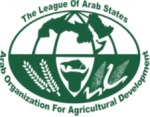Fragile Lives 2024 is an international expert conference on the use of rigorous, scientific evidence for the development of knowledge-based policy interventions in fragile, conflict-affected and under-developed settings. It focusses specifically on how poly-crises shape individuals, institutions, and interventions at the micro-level and on the policies that can boost resilience and coping capacities in the context of these shocks. IFPRI-Sudan and CGAIAR’s FCM Initiative contribute two sessions in the event as follows:
Session: What we (don’t) know about the crisis in Sudan
Khalid Siddig, Senior Research Fellow and Sudan Strategy Support Program Lead will be a panelist in a session on What we (don’t) know about the crisis in Sudan. The aim of the session is to bring together practitioners, donors and academics to discuss the crisis in Sudan, how to generate data and evidence about the crisis and its impacts on lives and livelihoods, and how to design, implement and evaluate policy interventions during the crisis.
Speakers:
- Adam Yao – Deputy FAO Representative (FAO Sudan)
- Khalid Siddig – Senior Research Fellow (IFPRI)
- Francisca Castro – Researcher (ISDC – International Security and Development Center)
Moderator: Ibrahim Elbadawi – Director (ERF).
Session: Fragility, Conflict, Migration
IFPRI-Sudan in collaboration with FCM will further host an organized session highlighting lessons learned on how to improve policies, programming, and interventions tackling fragility and promoting stability across a set of FCM countries including Nepal and Nigeria, Ethiopia and Mali.
This session will feature presentations of new empirical work that aims to inform policy priorities and investment options for rehabilitating and rebuilding communities affected by conflict and other forms of shocks in Africa. We aim to share relevant emerging lessons and research findings conducted by CGIAR and its partners, focusing on alternative programming, targeting, and delivery of social assistance programs in fragile settings.
List of Papers Included in the Session
- Targeting Social Assistance in Fragile Settings: An Experiment on Community-Based Targeting. Authors: Kibrom Abay, Guush Berhane, Daniel Gilligan, Kibrom Tafere, and Alemayehu Seyoum Taffesse. This paper explores the effectiveness of community-based targeting for social assistance programs in fragile settings, based on empirical evidence from recent experiments.
- Impact of Ongoing Conflict and Pathways to Recovery in Sudan (2023-2028). Authors: Khalid Siddig, James Thurlow, Mosab Ahmed, Josée Randriamamonjy, Mariam Raouf. This study examines the socioeconomic impacts of the ongoing conflict in Sudan and proposes pathways to recovery over the next five years.
- Unlocking Locally-Led Anticipatory Action: How Local Context Shapes Aid Preferences Among Community Leaders in Mali. Author: Jordan Kyle. This paper investigates how local context influences the preferences of community leaders for aid interventions, emphasizing the importance of locally-led anticipatory action in Mali.
- Cash Transfers, Conflict, and Mental Health: Evidence from a Randomized Experiment in Ethiopia. Authors: Halefom Nigus and others. This research presents evidence from a randomized experiment on the impact of cash transfers on mental health outcomes in conflict-affected regions of Ethiopia.
Discussants
- Agnes Quisumbing, Senior Research Fellow, IFPRI
- Ibrahim Elbadawi, Managing Director, Economic Research Forum.
